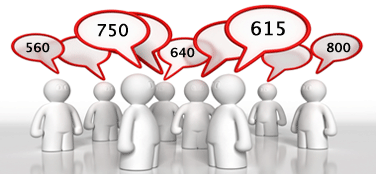

- Credit 101
- Teaching Tools
- Scores
- Life Stages
- Credit Mishaps
- Understanding Different Bankruptcy Chapters
- Your Credit Report After a Bankruptcy
- Understanding Judgments
- Inaccuracies on Your Credit Report
- Disputing Credit Report Errors
- Understanding Foreclosure
- The Foreclosure Process & What To Do Afterwards
- Understanding Identity Theft
- In the event of: The Death of a Spouse
- Rebuilding Your Credit
- Choosing a Reputable Credit Counselor
- Avoid the Downside of Credit Mismanagement
- What is a Credit Freeze
- Worksheets & Letters
- 6 Steps to Creating a Budget
- Household Budget: Wants vs Needs
- Personal Budget Template
- Understanding Amortization Schedules
- Loan Amortization Calculator
- Sample Opt-Out Letter
- Sample Dispute Letter
- Annual Credit Report Request Form
- Auto Loan Payment Calculator
- Back-to-School Budgeting
- Cost of Credit
- Emergency Fund
- How Much Car Can You Afford
- How Much House Can You Afford
- How Much Will College Cost
- How Much Will My Loan Cost
- How Will My Savings Grow
- Mortgage Payment
- Mortgage Refinancing
- Pay Down Debt or Invest
- Repaying Student Loans
- Retirement Fund
- Rework Your Budget
- Saving for a Goal
- Should I Consolidate My Debt
- Travel Budgeting
- Your Holiday Budget
- Buying a House
- 5 Steps to Buying a Home
- 5 C's of credit When Applying for a Loan
- What Score is Needed to Purchase a Home
- Using a Realtor
- Understanding Fixed Rate Mortgages
- Understanding FHA Loans
- Understanding VA Loans
- Understanding Interest Only Loans
- Understanding ARM Loans
- Understanding Combo Loans
- Understanding Streamline K Loans
- Understanding Bridge Loans
- Understanding HELOC (Home Equity Line of Credit)
- Understanding Reverse Mortgages
- Basic Mortgage Underwriting Principles
- Credit & Financial Law
- Home


Understanding Credit Ratings
In addition to using credit (FICO) scores, most countries (including the U.S. and Canada) use a scale of 0-9 to rate your personal credit. On this scale, each number is preceded by one of two letters: "I" signifies installment credit (like home or auto financing), and "R" stands for revolving credit (such as a credit card).
Each creditor will issue its own rating for individuals. For example, you may have an R1 rating with Visa (the highest level of credit rating), but you might simultaneously have an R5 from MasterCard if you've neglected to pay your MasterCard bill for many months. Here is how the scale breaks down:
Rating |
Description |
| R0 or I0 | You are new to the credit world, and you have an insufficient credit history for making an accurate judgment of your future risk. |
| R1 or I1 | You pay your credit back in 1 month. |
| R2 or I2 | You pay your credit back in 2 months. |
| R3 or I3 | You pay your credit back in 3 months. |
| R4 or I4 | You pay your credit back in 4 months. |
| R5 or I5 | You have not repaid in four months, but you are not a "9" yet. |
| R7 or I7 | Your debt payments are made under consolidation. |
| R8 or I8 | Debt was cleared by selling the item (repossession). |
| R9 or I9 | You officially have bad debt (default), which usually means it is uncollectible. |
